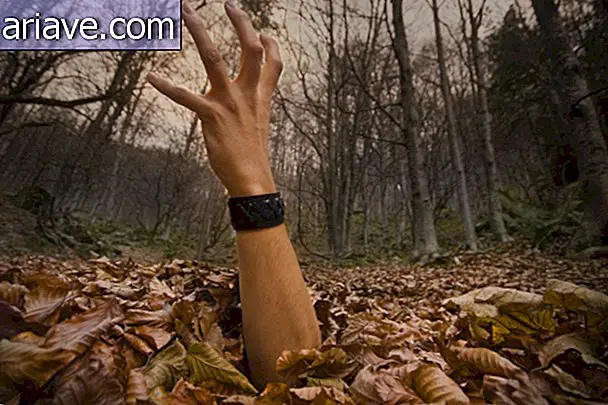Artificial intelligence has been unraveling the minds of serial killers
Serial killers are as complex and deadly as they are fascinating threats, and if you've seen sitcoms like Netflix's "Mindhunter, " you should know that finding the patterns and connecting facts and data about crime and victims are key lines of hunting. to these types of homicides. And do you know what it's all about finding patterns and connecting facts and data? Yes, artificial intelligence (AI). That is why it has been used more deeply in this area.
There are estimated to be between 25 and 340 active serial killers in the US.
There is no exact information on how many serial killers are active in the United States. The history of law enforcement failures, as well as inaccurate reporting, coupled with poor quality evidence and the difficulty in solving these mysterious cases make the mission of setting an estimate rather difficult.

The projection is between 25 and 340, while the FBI thinks it is around 150 and other experts think of something much larger. So how do you narrow the scan and get more accurate results? “To find a killer, you have to think like a killer, ” many would say. And that is exactly what they are doing with the AI called CARMEL.
CARMEL, the AI who thinks like serial killer and makes poetry
“Between the late 1960s and early 1970s, a self-confessed killer terrorized Northern California with a succession of random killings and provocative letters sent to police and newspapers. Four of these statements contained cryptograms full of disconcerting letters and abstract symbols. Cryptologists regard the 340-character Zodiac messages sent to The San Francisco Chronicle in November 1969 as the 'Holy Grail' of its kind. ”
CARMEL has already unveiled a 1730 codex from a German secret society
It is with this call that The History Channel presents the documentary "The Hunt for the Zodiac Killer" featuring AI CARMEL, created by Kevin Knight, an expert in artificial intelligence and cryptography. She was fed by all the available data about the Zodiac killer and has been cracking the codes. Check out an excerpt from the program below:
CARMEL has already beaten Codex Copiale, a 105-page manuscript found in Sweden. Dating from 1730, the text remained a mystery until 2011, when the machine revealed that the document contained information about the rites of a secret society, the Occultists, led by German ophthalmologist Friedrich August von Veltheim.
And CARMEL still has a surprise: It can use its learning machine to generate random poetry. To test, just log into your site.
Journalist created a serial killer detector algorithm
It would be no use searching the past of the top serial killers if it could not be used at present to find the criminals who are acting now. For this reason, journalist Thomas Hargrove has been compiling major municipal reports on the subject to feed an algorithm, capable of detecting patterns (or lack thereof) and making connections with current murder reports.
Every year about 5, 000 people kill someone and leave unharmed. Most of them did it more than once
Hargrove has the largest catalog of deaths in the United States, with 751, 785 cases since 1976. Just to give you an idea, that's 27, 000 more than the FBI has in its files. Using the computer code he wrote, he looks for statistical anomalies among the most common homicides resulting from love triangles, gang fights, robberies or fights. Every year about 5, 000 people kill someone and get away with it, and most of them have done it more than once. This is where your project, the Murder Accountability Project (MAP) comes in.
Hargrove-led MAP is a nine-member nonprofit task force that includes former detectives, students, and a forensic psychiatrist. In processing the data, AI gathers details about the victim's method, location, time, and gender, as well as the rate of unresolved episodes in a city. Currently, the group has been researching the mystery behind the unusual accumulation of choking and strangulation deaths of several women over 40 in Chicago.
Security agencies have also been exploiting the power of AI
While many of the programs are not exactly linked to serial killers, much of the data and experience has helped other areas of security, investigation and crime prevention. AI developer Veritone has been offering cognitive engines for audio transcription, face recognition, object identification, translation, audio and video analysis, and more.
These are all being used by security agencies, including for evidence production. The idea is to have the aid of a machine capable of evaluating thousands of hours of video footage in seconds.

Well, you still can't say exactly what the Zodiac meant by all your letters, not even accurately tracking where the top serial killers of our time are. But if it depends on AI's advances, surely many of them will be tracked faster and faster - and caught before they make more casualties and become the subject of yet another "Mindhunter" season.











